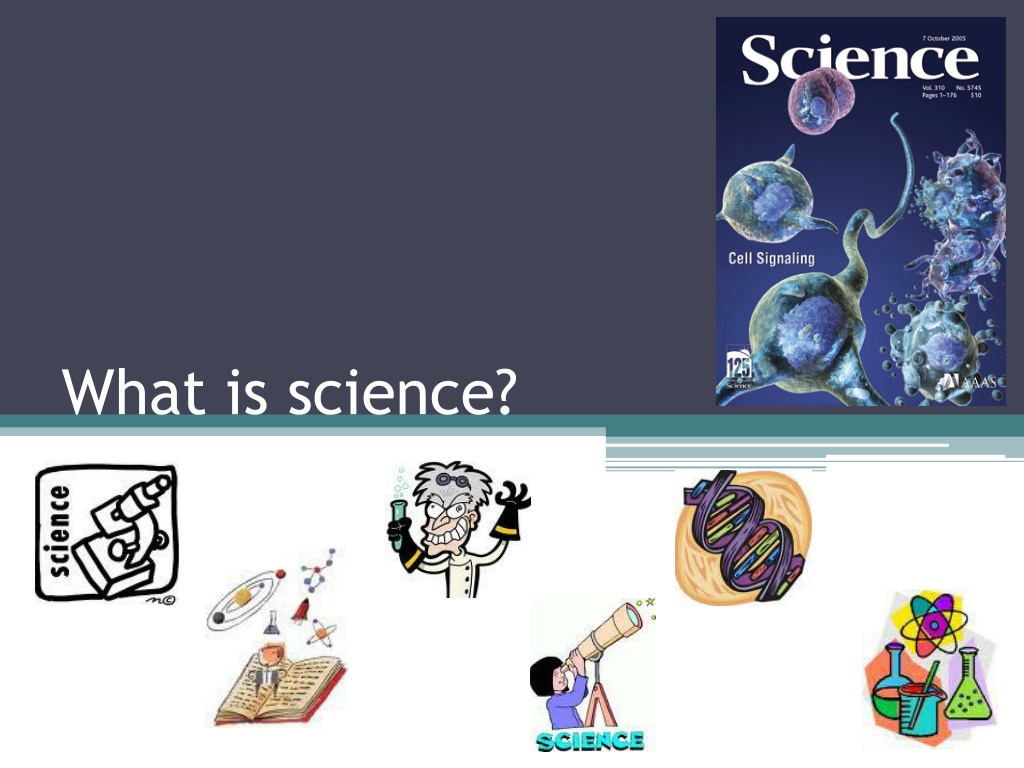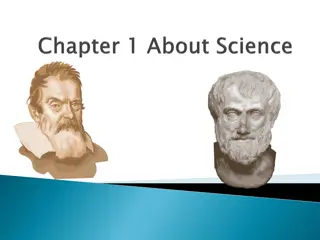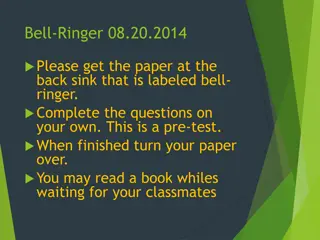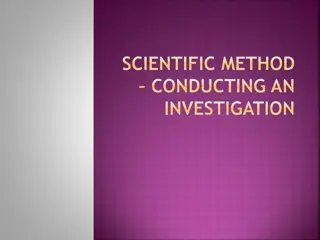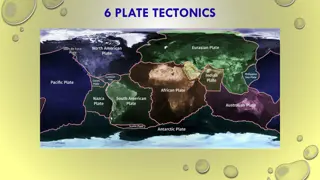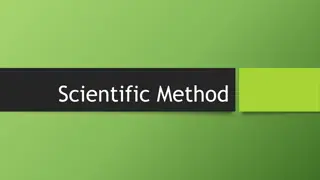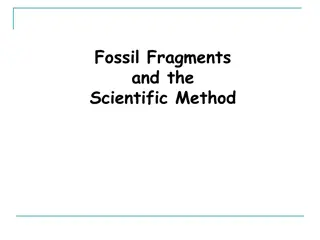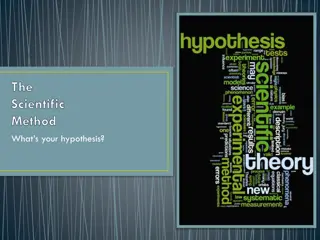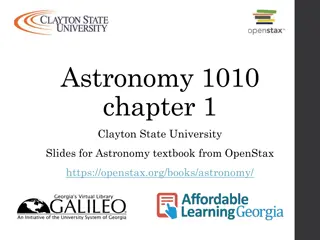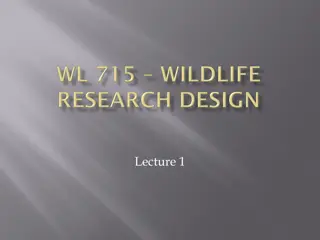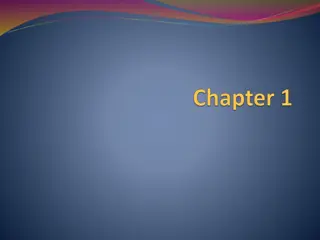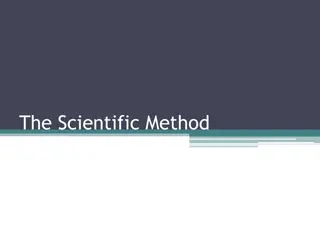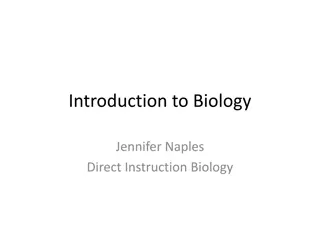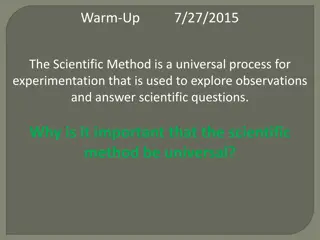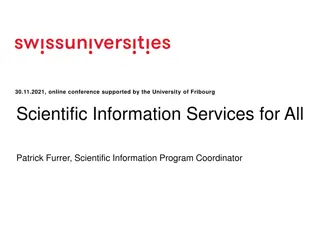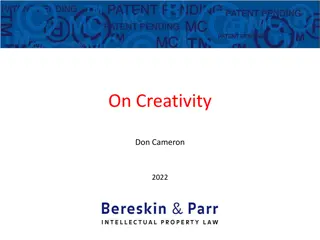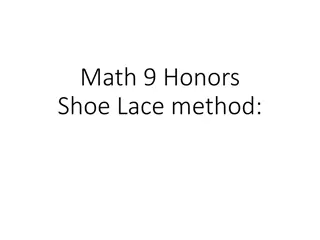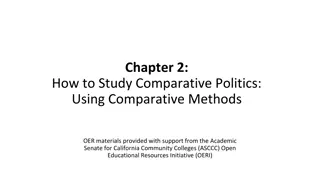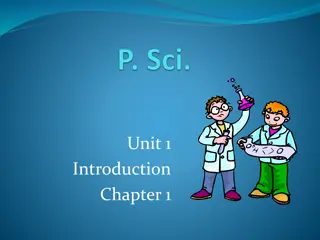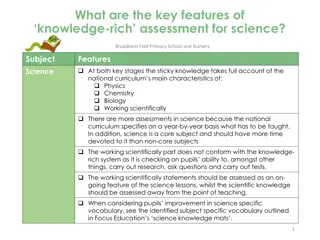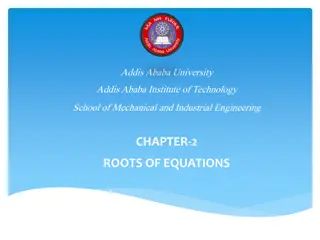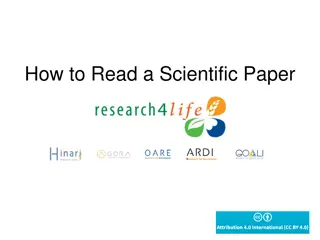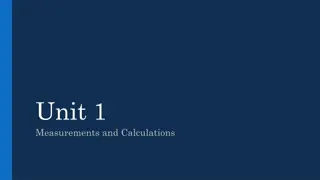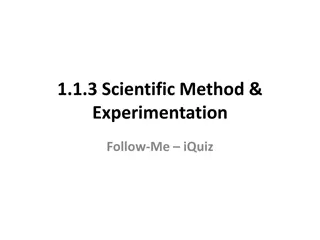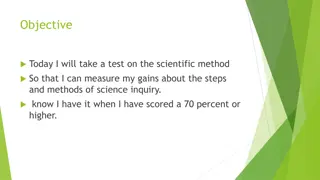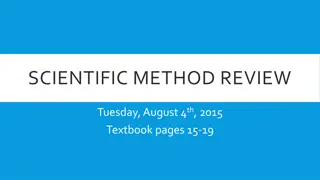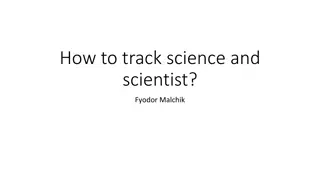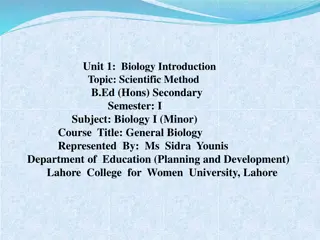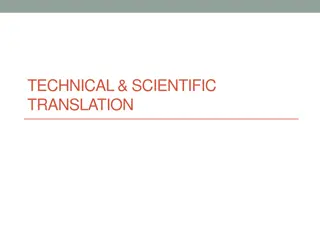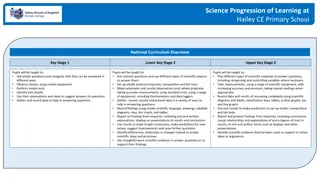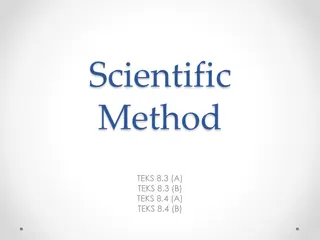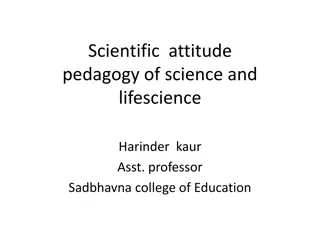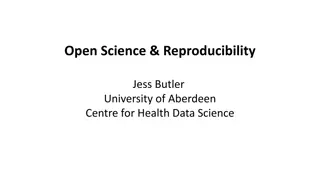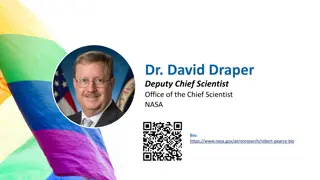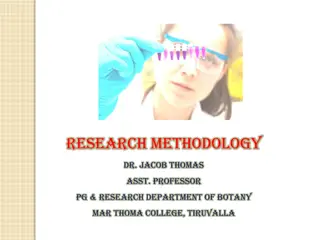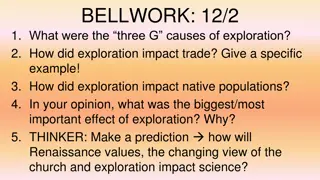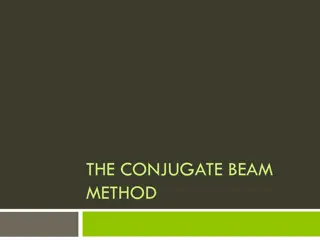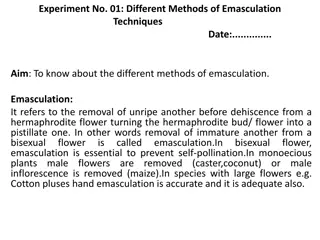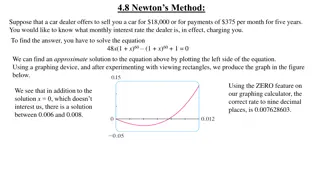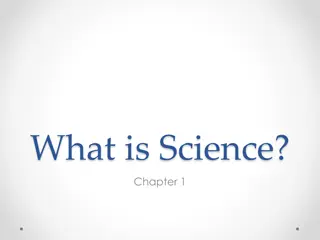Understanding Science and the Scientific Method
Science is the process of observing, thinking, and studying our world to gain knowledge and solve problems using the scientific method. It involves conducting experiments to gather evidence and answer questions. The scientific method includes steps such as identifying a problem, making hypotheses, performing experiments, and drawing conclusions. Examples and questions help illustrate how science works and how hypotheses can be tested in various scenarios.
Download Presentation

Please find below an Image/Link to download the presentation.
The content on the website is provided AS IS for your information and personal use only. It may not be sold, licensed, or shared on other websites without obtaining consent from the author. Download presentation by click this link. If you encounter any issues during the download, it is possible that the publisher has removed the file from their server.
E N D
Presentation Transcript
What is science? http://t2.gstatic.com/images?q=tbn:O3hijKBZxg4-oM:http://school.discoveryeducation.com/clipart/images/science.gif http://t2.gstatic.com/images?q=tbn:1q0uhVouDFyvWM:http://www.bilerico.com/2009/08/641px-mad_scientist_transparent_backgroundsvg.png http://t2.gstatic.com/images?q=tbn:Uin-8z0j8WBhmM:http://www.flascience.org/art/icondna.jpg http://t1.gstatic.com/images?q=tbn:ZVI1ZVy1xhTLlM:http://www.mariacarrillohighschool.com/CurricularAreas/Science/PublishingImages/history_science.jpg http://t2.gstatic.com/images?q=tbn:Yve6aUPBiZ4TwM:http://www.sciteam.ubc.ca/~sciteam/w/images/Science.gif http://t1.gstatic.com/images?q=tbn:71clJFfbXgjCoM:http://www.cameronmckinley.com/science.gif
Science is process of thinking, observing, & studying our world by using the scientific method to gain knowledge, answer questions, & solve problems! Experiments = Evidence! http://t2.gstatic.com/images?q=tbn:Yve6aUPBiZ4TwM:http://www.sciteam.ubc.ca/~sciteam/w/images/Science.gif
Questions to Consider! Will science provide answers to all our questions? Why? What is science limited by?
Question Activity One question that can be answered by biology/science? & One question that can not be answered by biology/science? http://t0.gstatic.com/images?q=tbn:B17kyaCl60apdM:http://upload.wikimedia.org/wikipedia/commons/6/67/Blue_question_mark.png
Steps of the Scientific Method 1. Identify a Problem 2. Gathering Information 3. Make a Hypothesis 4. Perform an Experiment 5. Analyze results 6. Draw Conclusions 7. Repeat & Communicate
Example: Fish are dying in a pond. We investigate the pond & find it is near a housing development, highway, and a farm. We predict that fertilizer from the lawns of the houses & the farm is washing into the pond and killing the fish. How could we design an experiment to test this?
How could we test these questions? Does cigarette smoking increases the risk of lung cancer? Can eating breakfast increases performance in school? How could we raise school spirit? What would your hypothesis be?
http://t1.gstatic.com/images?q=tbn:M4Atzxb-lnWfxM:http://dpw.lacounty.gov/epd/hhw/resources/illustrations/_pc/car_battery.bmphttp://t1.gstatic.com/images?q=tbn:M4Atzxb-lnWfxM:http://dpw.lacounty.gov/epd/hhw/resources/illustrations/_pc/car_battery.bmp Perform an experiment Controlled Planned out Procedure Collect Data (observations) to try and back up your hypothesis. http://t0.gstatic.com/images?q=tbn:luewUWZEPnB_gM:http://www.scooterunderground.ca/products/accessories/images/Battery_Tender_Jr.jpg
Observation vs. Inference Observation vs. Inference
Procedure Activity Notes Card Draw a simple picture on one side of the note card. On the other side, write a procedure to explain to someone else how to draw the same exact picture. Pair Up Using the procedure only, see if your partner can draw your picture. Hint: don t tell them what it is!
Steps of the Scientific Method 1. Identify a Problem 2. Gathering Information 3. Make a Hypothesis 4. Perform an Experiment 5. Analyze results 6. Draw Conclusions 7. Repeat & Communicate
Scientific Method Analyze the Data What does the data mean? Identify relationships
fish frog_clipart_lake Analyze Temperature (0C) 20 Dissolved Oxygen (ppm) Q: What does this data say? 45 A: As temperature increases, dissolved oxygen decreases 30 33 40 29 50 15 60 10
Scientific Method Draw conclusions My data did support my hypothesis that Or My data did not support my hypothesis that
recycle_clip_art recycle_clip_art What would your conclusion be? Hypothesis If maintenance increases the number of recycling cans in the lunch room, then the amount of trash will decrease. Data: # of recycling cans Amount of trash (tons) 2 3 4 5 6 250 200 150 150 149
Repeat Why would this be important?
Variable Any factor that can change Only want to change one factor at a time! Why? Constants: variables you keep the same Independent vs. Dependent Control Group Collect Data Qualitative vs. Quantitative http://t1.gstatic.com/images?q=tbn:93chpcJGw-zWeM:http://deimel.org/images/numbers.gif
You want to know what color flowers butterflies like best. You choose an area you know is naturally inhabited by butterflies. You plant 6 rows of flowers, each row a different color of the same type of flower. Twice a day, each day (morning & evening) you add up the number of butterflies found on each different color of flowers. What is your independent variable? What is your dependent variable? What are your constants?
Results of Science http://physics.ucr.edu/~wudka/Physics7/Notes_www/img1.gif Scientific Theory explanation that has been supported by many experiments Makes Predictions Has lots of evidence to support those predictions Is constantly being tested!
